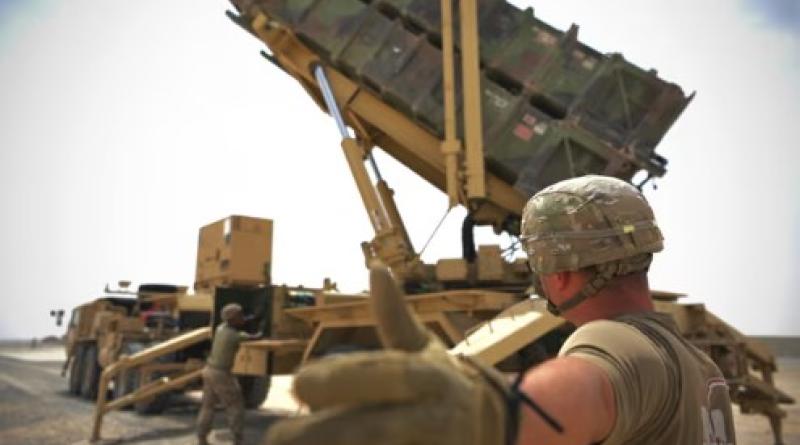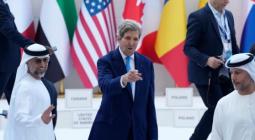Divert military spending to fund climate aid, activists urge Cop28

Wealthy nations should divert 5% of their military budgets to climate finance, advocates argue.
The call comes as global leaders at Cop28 in Dubai gather for a special-themed day on “relief, recovery, and peace” on Sunday, marking the first time climate-fueled conflict has ever been on an international climate conference agenda.
Participants will discuss the need to direct aid to “highly vulnerable, fragile, and conflict-affected communities” as evidence mounts that climate disasters put regions at greater risk of war, and amid ongoing conflict in Palestine as well as Ukraine, Sudan, and other areas.
But truly protecting communities from climate and conflict will require a shift in priorities, says the Transnational Institute, an international research and advocacy group.
“Money is being spent on militarization rather than on climate action,” said Nick Buxton, a researcher with the Transnational Institute, “though the climate crisis is the biggest [common] security threat that we face today.”
By diverting just 5% of global military budgets, the world could raise $110.4bn for climate finance – more than enough to meet a repeatedly broken annual climate finance target of $100bn, the organization has found.
“National – and global – security in the 21st century will depend on limiting the rise in temperature and resulting havoc more than on any other thing,” said the environmental activist and author Bill McKibben.
The world’s militaries produce at least 5.5% of greenhouse gas emissions – more than the total footprint of Japan – according to one 2022 estimate. But no country is required to provide data on military emissions thanks to successful lobbying by the US at the Kyoto conference in 1997. Leaders removed the exemption in 2015 but made reporting military emissions optional.
Military spending has grown by more than a quarter in the past decade, exceeding $2.2tn in 2022. During the same time period, attempts to mobilize funds for climate finance have faltered.
In 2009, for instance, rich countries agreed to spend $100bn on climate finance for developing world annually by 2020, but they broke that promise, providing only $90bn for climate finance in 2021.
Preliminary data from the Organization for Economic Cooperation and Development released this month indicates that the $100bn goal may have finally been met in 2022, but some experts say that assessment is based on inflated numbers. A 2022 investigation from Oxfam concluded that due to wealthy nations’ “dishonest and misleading” accounting, climate finance estimates in 2020 were as much as 225% too high.
Even if it turns out wealthy nations genuinely met the commitment, said Buxton, countries should still reallocate 5% of their military budgets. The $100bn number is widely understood to be far below the true need in poor countries; one 2022 report found that developing nations need $1tn per year to cope with the climate crisis.
Highly polluting nations will also need to come up with funding for loss and damage in poor countries. The need is already greater than $400bn annually and rising, by one estimate.
Countries with the largest militaries – largely the richest, most polluting nations – should bear the most responsibility for cutting global defense spending, the researchers say. They place particular focus on Nato, whose 31 members include the UK, Canada and the US, whose military, which is the world’s top-funded, is also the world’s largest institutional emitter.
Nato members accounted for more than half of all global military spending last year, and budgets are expected to rise. This year, members made “an enduring commitment to invest at least 2%” of their national budgets to their militaries. If that promise is fulfilled, by 2028, the additional funding would be enough to pay for all needed climate adaptation in hard-hit countries for seven years, the researchers calculated based on United Nations data.
Increased militarization harms climate-affected countries in other ways, too, the researchers say. For instance, they found that Nato members are currently selling arms to 39 of the 40 most climate-vulnerable countries; 17 of which are already in armed conflict.
“It’s a real perversion: rather than providing support for communities we are actually making the situation more dangerous and more unstable,” said Buxton.
Diverting some military spending to climate finance would make the world safer, said Perry O’Brien, climate justice organizer at US veteran-led advocacy group Common Defense.
“We know true national security means protecting people and communities from harm,” he said.







